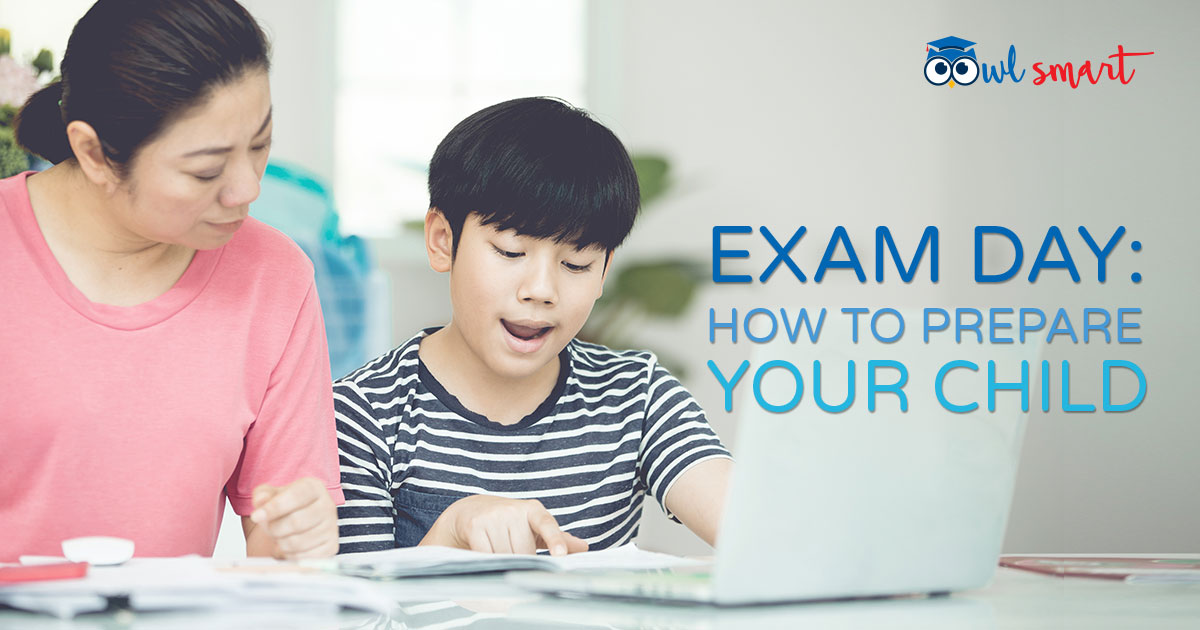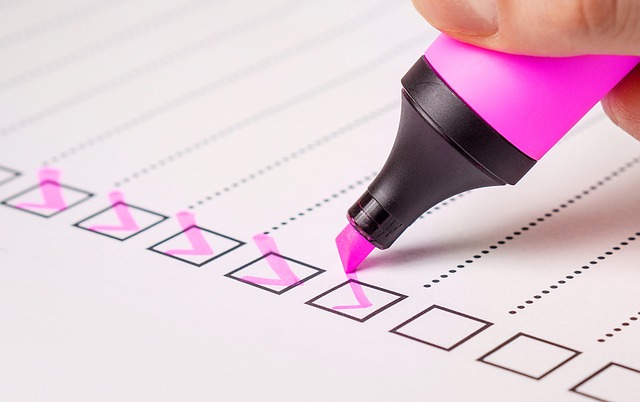
All parents wish that their children’s hard work and effort would pay off in exam and it will translate to good results.
The last thing a parent wants for his/her child is to fall sick during this critical period or to blank out during examinations.
So, the question is what should your child do on examination days to ensure that he/she is in the best condition to sit for the examinations?
Here is a list of some useful tips to help your child!
-
Tip 1: Check Examination Details
Know the date of each paper, time, duration, PSLE index number and the room for examinations so that your child is “in control” and will not fluster easily in case of unexpected circumstances.
Your child can plan what time to wake up and to leave for school so that he can report to school punctually.
Try to leave for school earlier than usual in case of inclement weather, traffic jam or unexpected event like MRT breaking down!
Being late for exam can really unnerve your child such that he loses all his focus to sit for examination.
-
Tip 2: Watch what Your Child Eats
Avoiding eating food that you know might cause your child to fall sick – oily fried food, cold frizzy drinks, spicy food, food that triggers his allergy, etc.
This is especially true on examination day itself! You will not want your child to have a bad stomach ache during examinations.
-
Tip 3: Ensure that Your Child has Packed His Bag the Day Before
Make sure that all critical items like bus card, wallet or stationery are packed in your child’s bag.
You will not want your child to make his or her way back home to retrieve them halfway along the journey to school.
-
Tip 4: Have Enough Rest

Your child should not burn mid-night oil for the last few days before examination.
The duration of revision should slowly reduce so that your child’s body is well-rested and his attention and focus are sharp.
Sleep early the day before examination!
-
Tip 5: Study Own Written Notes for a Quick Recap
Some students have a habit of revising till the last minute and they will bring one big stack of notes or books to school for last minute revision.
In this case, it is good to revise your own summarised written notes for each subject so that you can do one round of quick recap of concepts or your weaknesses on examination day itself.
-
Tip 6: Remind Your Child to go to the Restroom Before Examination
Precious Time can be wasted if your child needs to go to the restrooms halfway during examinations.
This is especially true for shorter papers like writing and Math Paper 1 whereby every second is valuable.
-
Tip 7: Bring Along a Water Bottle
It is always good to bring along a water bottle so that your child will not need to go to the water cooler to quench his thirst.
Do not drink big mouthful of water as your child might need to go to the restrooms more frequent than usual.
Some schools do not allow students to bring their water bottles into the exam rooms. Thus, it is good to take a few sips of water before going into the room.
-
Tip 8: Plan the amount of time beforehand needed for each section of the paper

For example, for Math Paper 1, spend 1 min per 1-mark question and up to 3 mins per 2-marks question.
Remind your child to proceed to the next question if he/she is stuck on a particular question. Do not get rattled by a particular tough question, move on!
Your child can always revisit the question again once he has completed the rest of the paper.
Different child has different strategies. I know of some students who prefer to tackle the tougher questions first before moving on to the easier ones.
For example, completing open-ended questions in Science Booklet B before moving on to MCQs in Booklet A.
For me, I would advise your child to complete the easier section first. Your child might be stumbled when attempting a tough question first which will waste more time and affect his confidence or grasp of timing for the rest of the paper.
-
Tip 9: Always Read the Questions and Instructions Carefully
Throughout my years of teaching, I have come across many students who did not answer questions directly or answer according to what the question asked for.
This problem can be easily resolved if a student takes time to read the questions and underline important words/details in the question stems.
Underlining helps the student to focus on important contextual clues and what the question is really asking for.
However, do take note to remind your child not to highlight too many words or the whole sentence as it defeats the purpose of underlining too.
-
Tip 10: Always Check the Paper if Completed Earlier

I am sure you would have heard so many times from your child or your child’s teacher that your child could have scored a few more marks if he or she has read the questions more carefully.
There is no room for complacency during examinations. Many students like to “play” with their stationery or “sleep” during examinations once they have completed their papers. Make use of the time left wisely!
Conclusion
I hope that the above-mentioned tips will be useful to your child as he takes his examinations. Above all, it is vital to KEEP CALM on the day of examination so as to do well for it. Lastly, I wish your child success in his/her coming examinations! Cheers!
About the Author
Teacher Zen has over a decade of experience in teaching upper primary Math and Science in local schools. He has a post-graduate diploma in education from NIE and has a wealth of experience in marking PSLE Science and Math papers. When not teaching or working on OwlSmart, he enjoys watching soccer and supports Liverpool football team.



